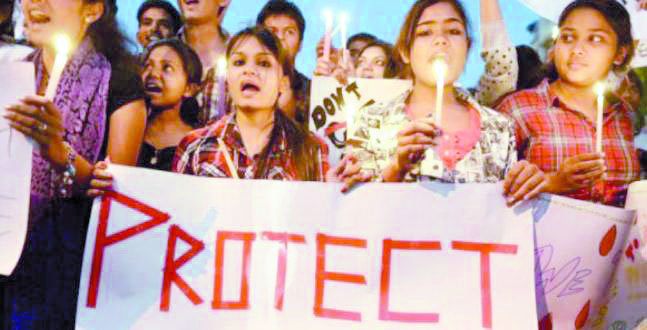A survey revealed that the public sentiment now favours more women in politics. By Team Viva
There was a time when voices were raised for the universal adult franchise by women to attain the right to vote. They did get the right eventually. However, the battle wasn’t over.
A recent survey by Change.org, which talked about challenges that women face in politics, revealed that crimes against women rank as top election issue among women.
The survey also revealed public opinion, which is strongly in favour of more women candidates in politics. The survey, titled #SheVotes, showed a strong wave among both men and women who responded that they would prefer to vote for women candidates they felt were equally qualified.
The respondents also felt that women were grossly underrepresented in the Parliament despite public opinion that women are “more likely to hear and connect with social issues.”
The online survey, that was conducted among 20,000 Change.org users across the nation, brought together two politicians — Sushmita Dev, president, Mahila Congress, and Shweta Shalini, spokesperson from BJP — to talk about how challenging women’s roles in politics are.
Dev said, “Women’s role in politics — as elected representatives and as voters — has to be valued. Women are natural leaders. We are trying to implement 33 per cent reservation for women in all Congress-ruled states to create more opportunities.”
Shalini said, “An equitable democracy is not just one in which women have equal rights to elect, it is the one in which they have equal opportunities to be elected. The tide is turning in favour of more women’s representation in politics. We cannot ignore it.”
Nida Hasan, country director, Change.org, said, “The survey finds that women want to directly engage with politicians but are still uncomfortable with in-person meetings. They prefer digital petitions as a significant way of connecting with their elected representatives. The survey also shows that gender issues will play an important role in the upcoming General Elections.”
Of the 20,000 respondents, 4,000 were women and around 16,000 were men.
Most common issues
Among a list of 40 issues, people chose the ones that, according to them, are most likely to likely to impact the General Elections. The top ones were gender issues, environment, mental health and freedom.
On a hierarchy of one to five, the top gender issues that women want to be addressed are — Crimes against women; freedom of choice of religion, education and marriage for women; menstrual hygiene; girl child education and maternal health and infant mortality. As per the survey, women ranked gender issues much higher than men. Among all issues, where crimes against women ranked one among women, while men ranked it as the 15th.
While 31 per cent women ranked marital rape as 25th among all issues that they want to hear more about, 16 per cent men ranked it as 37th.
Women ranked freedom of choice for women in religion, education, marriage, etc, at 11th (40 per cent). Among men, it ranked at 27 (23 per cent). Female workforce participation stood at 20th rank among 33 per cent of women, while it ranked 31 for 21 per cent of men.
While men wanted to hear more about corruption, infrastructure and roads, employment and job creation.
While among other issues, 34 per cent women wanted mental health and around 20 per cent were men who stood for the issue. Around 32 per cent women and 23 per cent men wanted religious freedom. Environmental issues, waste disposal, air pollution and forest conservation also mattered the most to the respondents.
Voting patterns
As per the research, around 17 per cent women opposite 21.9 per cent men vote a candidate based on his/her track record. Majority of respondents would vote for an equally-qualified female candidate over her male counterpart (56.64 per cent).
It also showed that people want to play a bigger role in the democracy that goes beyond just casting their vote. Around 57.53 per cent of respondents wanted to be able to provide public inputs of policy-making via public consultations and meetings (offline), and 55.76 per cent wanted to participate through digital petitions (online).
However, it showed that women are less likely to go for personal meetings with elected representatives and preferred more digital petitions (28.21 per cent) for public decision-making.


























